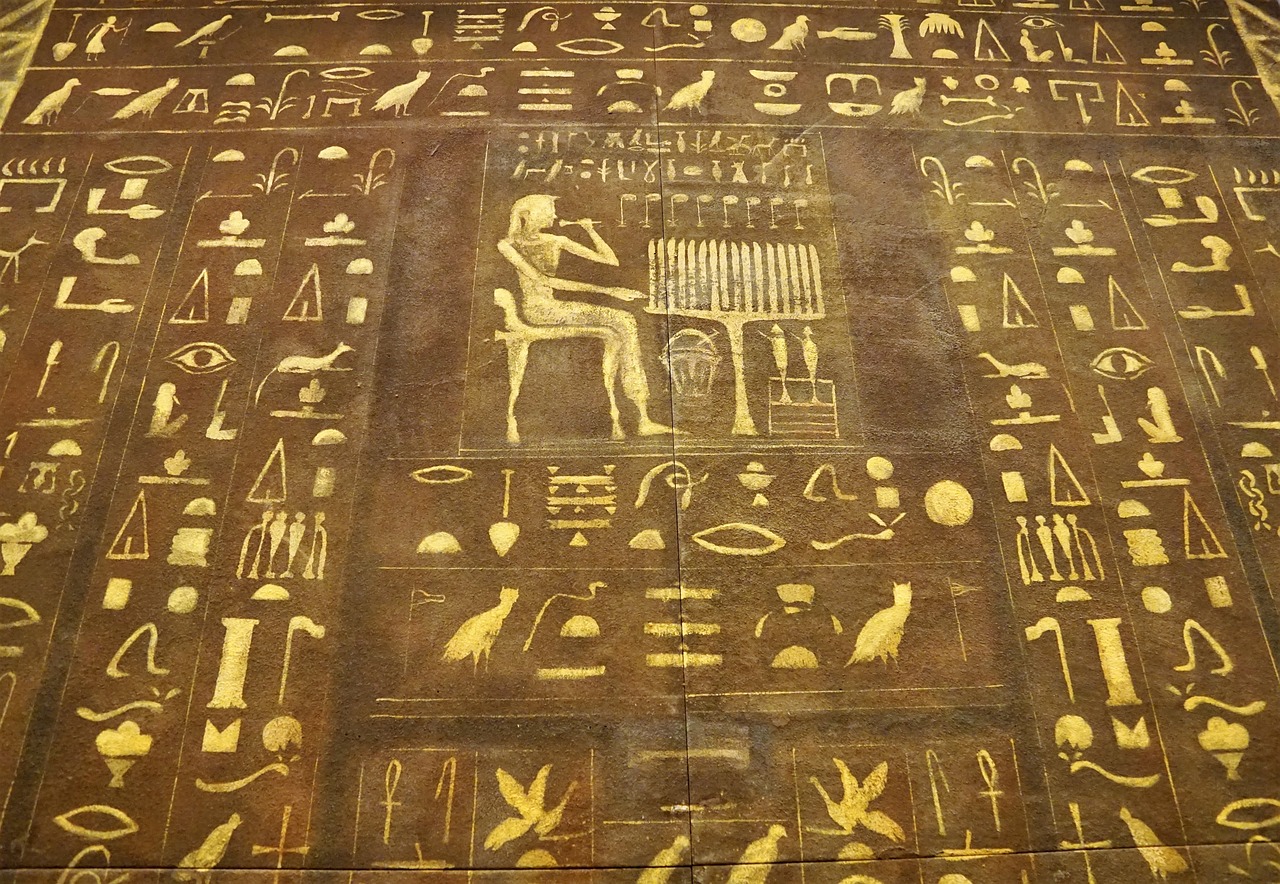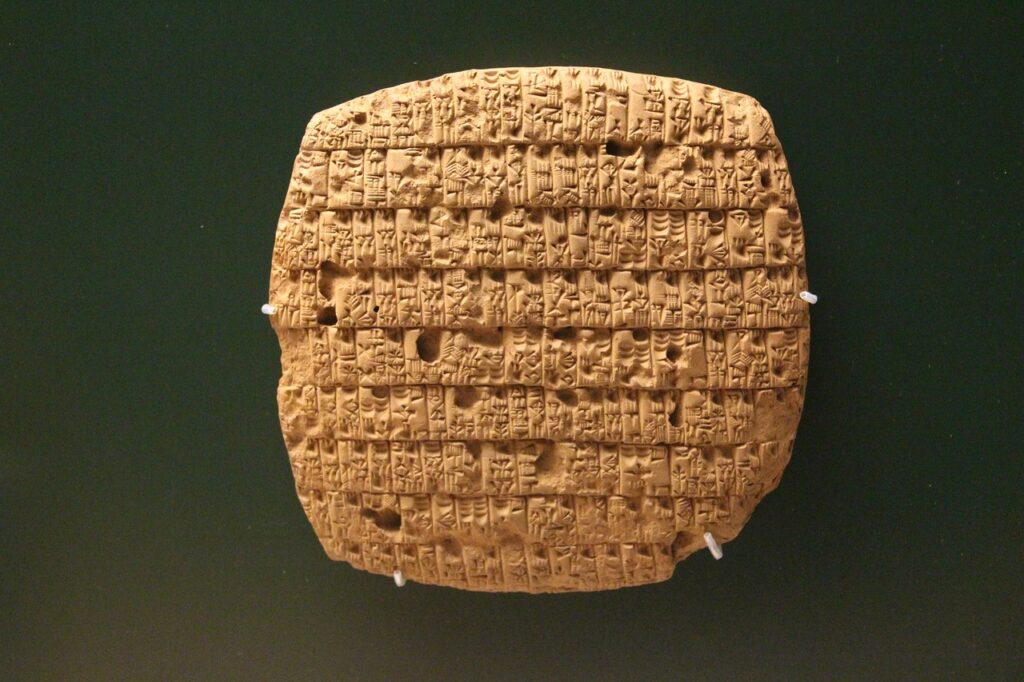Beer is old. No, I’m not talking about that bottle of home brew you accidentally left in the cellar for 3 years. Beer and brewing has its roots in the ancient world. The exact origins of beer is hard to pin down – it is likely that several ancient cultures developed beer independently through the (probably accidental) fermentation of malted grains.
In this article we look at the origins and early history of beer. We’ll explore the significance of beer not only as a refreshing beverage but also as currency, religious artefact, medicine and social lubricant.
What do we mean by beer?
Before we dive into the ancient origins of our favourite beverage, we need to ask a question: what do we mean by “beer”? When we think of modern beer, we think of an alcoholic liquid, fermented from malted barley with hops added. There’s obviously a few different styles but the definition is pretty fixed. However this was not always the case…
Ancient beer varied significantly according to where it was made and what ingredients were available. However, the truth is, we just don’t know what was in a lot of these beverages. We know that there was grain, including malted barley alongside millet and any number of other ingredients. There are only limited contemporary texts available that describe ancient beer recipes so a lot of what we know is from later scientific analysis, historical research and guesswork.
It’s worth mentioning that most ancient civilizations from Australian Aboriginals to Vikings were probably fermenting food and alcohol. This may be mead, wine or any other number of food and beverages. To keep things simple for this article, we’ll be looking at civilizations that brewed something that more or less resembles beer: a fermented beverage made from malted grain (mostly barley).
Ancient beer
The earliest beers were probably made, or rather discovered, when ingredients including malted grains were left in water and accidentally started fermenting due to the natural yeasts in the environment. Because of this accidental origin story, it is likely that several ancient civilizations developed beer independently of each other.
In Mesopotamia (in and around modern day Iraq), the Sumerians loved their beer. Around 4000BCE we see evidence of beer making emerging through texts and modern analysis of ancient brewing vessels. In Sumerian culture, beer was so much more than an intoxicating beverage. There is evidence that workers were sometimes paid in a beer ration and it was a crucial part of their daily calories. The Sumerians were known to frequent taverns where beer and food was served. There were extensive rules around brewing and trading beer which cemented its status not only as a beverage, but also as a currency.
Beer was made in Sumerian homes as well as specialised brew houses. It was enjoyed by all levels of society from lowly peasants to royalty. Beer was so important to Sumerians that they had a beer goddess: Ninkasi. Ninkasi protected beer and the brewers and the earliest known written references to beer were cuneiform texts associated with the goddess.
Around the same time (or perhaps even earlier in the neolithic period) the Chinese were also brewing a type of beer known as “li”, “jiu” or “qingkejiu”. While the process was the same other ancient civilizations (malt, mash, ferment) it is likely that the grains varied. Evidence suggests that the beer being made in China wasn’t standardised and included rice and millet alongside barley. Beer production in China was highly specialised: master brewers were revered for their abilities and operated in specialist brew houses.
As with the Sumerians, the ancient Chinese used beer for more than drinking. It had important ritual and religious significance as well as medicinal purposes. As trade with the middle east and other areas expanded, so did beer production. During the imperial period, with the rise of other fermented beverages such as rice wine, beer eventually fell out of popularity in China.
The Ancient Egyptians really liked beer too. At the same time that the Chinese and Sumerians were brewing up beer, the Egyptians were making their version. There are numerous examples of earthenware vessels that depict people making and enjoying beer as far back as 4000BCE. Unlike some other ancient civilizations, Egyptian beer was probably made mostly from malted barley – which was an important and widespread crop in Egypt at the time. As well as malting, mashing and fermenting, it is likely that the Egyptians also filtered their beer to remove solids that were a result of the brewing process. You might be wondering why there were solids in beer…the Egyptians got the yeast for their brew by throwing chunks of bread into the wort before it was transferred into heated vessels to ferment. If you’re interested in learning more about this process, check out this great work done by the British Museum to recreate ancient Egyptian beer.
Once again, the beer that the Egyptians made was much more than just a refreshing beverage or a form of nutrition. It was traded and revered as an important part of religious ritual. Beer had a special place in ancient Egyptian beliefs about the afterlife. It was included among the provisions buried with the deceased to sustain them in the afterlife. The Book of the Dead, a collection of funerary texts, mentions beer as one of the items necessary for the journey to the underworld.
Mediaeval beer (and beyond)
During the mediaeval period and beyond, we start to see advances of beer in Europe and other places. It is during this time that we start to see a drink that looks more like what we enjoy today. Thanks to monastic breweries, brewing housewives and Germans we start to see the wonderful varieties that are similar to what we drink today. While beer largely lost its ritual significance during this time, it remained vitally important as a source of clean nutrition and as the centre for socialising in the home and at taverns and pubs. As we moved toward an industrial society, beer entered the realm of mass production.
There was lots of beer being brewed around the ancient world as far back as 6000BCE. It is likely that beer developed in these societies independently as people realised that fermenting germinated grain made an extremely tasty beverage. Although it likely didn’t taste as good as our modern lagers and ales, it does give us an insight into these ancient and diverse civilizations.
Read next: Risks Associated with Improperly Homemade Fermented Drinks and Making Ginger Beer (Without Equipment!)






